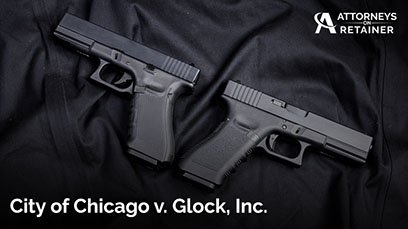AOR Covers What Other Insurance-Backed Programs Won’t
When it comes to self-defense protection programs, the fine print is where many people get left behind. Traditional insurance-backed programs often build exclusions into their contracts, designed to protect the company rather than the individual. These exclusions allow companies to deny coverage if your permit is expired, if the incident occurred in a gun-free zone, if drugs or alcohol was involved, and much more.
Read More ›A Self-Defense Incident Can Happen Anytime, Anywhere - Be Legally Prepared Before It Does
Self-defense incidents can happen to anyone, often in the most ordinary places. A quick trip to the store, a walk through your neighborhood, or a drive home can turn into a life-changing event in seconds. You may genuinely believe you absolutely acted in self-defense, yet the legal system does not always see it that way.
Read More ›AOR’s Three Simple Criteria for Self-Defense Coverage
When it comes to legal self-defense programs, most gun owners are surprised to learn that coverage isn't always clear. Most of these programs include long, complicated lists of exclusions, fine print, and conditional clauses that can leave members uncertain whether they'll be protected when they need it most. Some specify that you use a particular type of weapon, or that you meet subjective standards of “reasonable” force, often decided after the incident.
Read More ›Real Self-Defense Cases: Why the Right Legal Team Makes All the Difference
Real self-defense cases handled by the Attorneys For Freedom Law Firm. Discover how AOR members were protected when their freedom was on the line — and why having the right legal team makes all the difference.
Read More ›Why Most Self-Defense Insurance-Backed Programs Fail You When It Matters Most
When it comes to insurance-backed self-defense programs, the fine print is where most members get burned. These companies advertise broad “self-defense coverage,” but their contracts are riddled with exclusions that can take away coverage when it matters most. An expired CCW permit, a self-defense incident in a so-called “gun-free zone,” or if alcohol is alleged to be involved, can all serve as grounds to deny protection.
Read More ›Why a Law Firm That Specializes in Self-Defense Cases Matters for Gun Owners
If you ever need to use force to defend yourself or others, you can still be arrested, charged, and prosecuted. In that fight, the attorney standing beside you could be the difference in whether you walk free or spend years behind bars.
Read More ›When Self-Defense Gets Costly: The True Price of Protecting Yourself
Responsible individuals who prepare for self-defense often focus on physical skills—such as training, situational awareness, and having the right tools. However, many don’t fully consider the potential legal and financial consequences of a self-defense incident until it’s too late.
Read More ›City of Chicago v. Glock, Inc.
On March 19th, 2024, the City of Chicago filed a civil complaint against Glock, Inc., accusing the gun maker of knowingly selling pistols that can easily be converted into machine guns by adding an after-market part called an auto sear or “Glock Switch.”
Read More ›Inaugural AOR Conference
Join the Attorneys For Freedom from Friday, November 8th to Sunday, November 10th, 2024!
Read More ›Monthly Spotlight: California Gun Owners Still Free from SB2
California’s sweeping restrictions on public gun possession are on hold. As of January 6, 2024, SB2 has been stayed by a federal court order and is NOT in effect.
Read More ›










